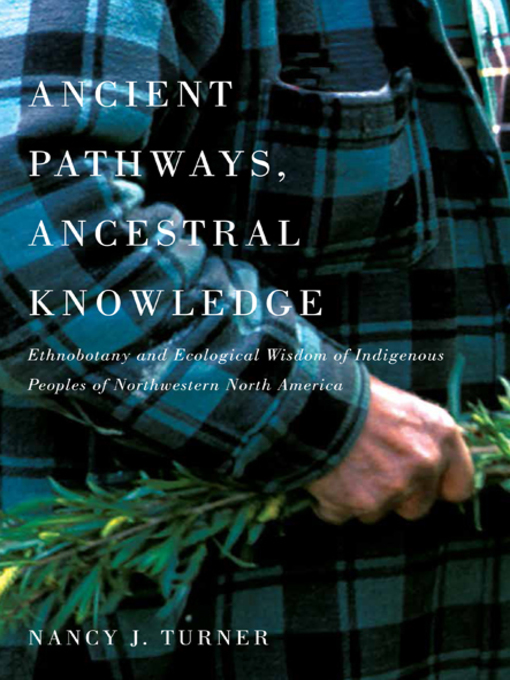Volume 1: The History and Practice of Indigenous Plant Knowledge. Volume 2: The Place and Meaning of Plants in Indigenous Cultures and Worldviews.
Nancy Turner has studied Indigenous peoples' knowledge of plants and environments in northwestern North America for over forty years. In Ancient Pathways, Ancestral Knowledge, she integrates her research into a two-volume ethnobotanical tour-de-force.
Drawing on information shared by Indigenous botanical experts and collaborators, the ethnographic and historical record, and from linguistics, palaeobotany, archaeology, phytogeography, and other fields, Turner weaves together a complex understanding of the traditions of use and management of plant resources in this vast region. She follows Indigenous inhabitants over time and through space, showing how they actively participated in their environments, managed and cultivated valued plant resources, and maintained key habitats that supported their dynamic cultures for thousands of years, as well as how knowledge was passed on from generation to generation and from one community to another. To understand the values and perspectives that have guided Indigenous ethnobotanical knowledge and practices, Turner looks beyond the details of individual plant species and their uses to determine the overall patterns and processes of their development, application, and adaptation.
Volume 1 presents a historical overview of ethnobotanical knowledge in the region before and after European contact. The ways in which Indigenous peoples used and interacted with plants - for nutrition, technologies, and medicine - are examined. Drawing connections between similarities across languages, Turner compares the names of over 250 plant species in more than fifty Indigenous languages and dialects to demonstrate the prominence of certain plants in various cultures and the sharing of goods and ideas between peoples. She also examines the effects that introduced species and colonialism had on the region's Indigenous peoples and their ecologies.
Volume 2 provides a sweeping account of how Indigenous organizational systems developed to facilitate the harvesting, use, and cultivation of plants, to establish economic connections across linguistic and cultural borders, and to preserve and manage resources and habitats. Turner describes the worldviews and philosophies that emerged from the interactions between peoples and plants, and how these understandings are expressed through cultures' stories and narratives. Finally, she explores the ways in which botanical and ecological knowledge can be and are being maintained as living, adaptive systems that promote healthy cultures, environments, and indigenous plant populations.
Ancient Pathways, Ancestral Knowledge both challenges and contributes to existing knowledge of Indigenous peoples' land stewardship while preserving information that might otherwise have been lost. Providing new and captivating insights into the anthropogenic systems of northwestern North America, it will stand as an authoritative reference work and contribute to a fuller understanding of the interactions between cultures and ecological systems.

